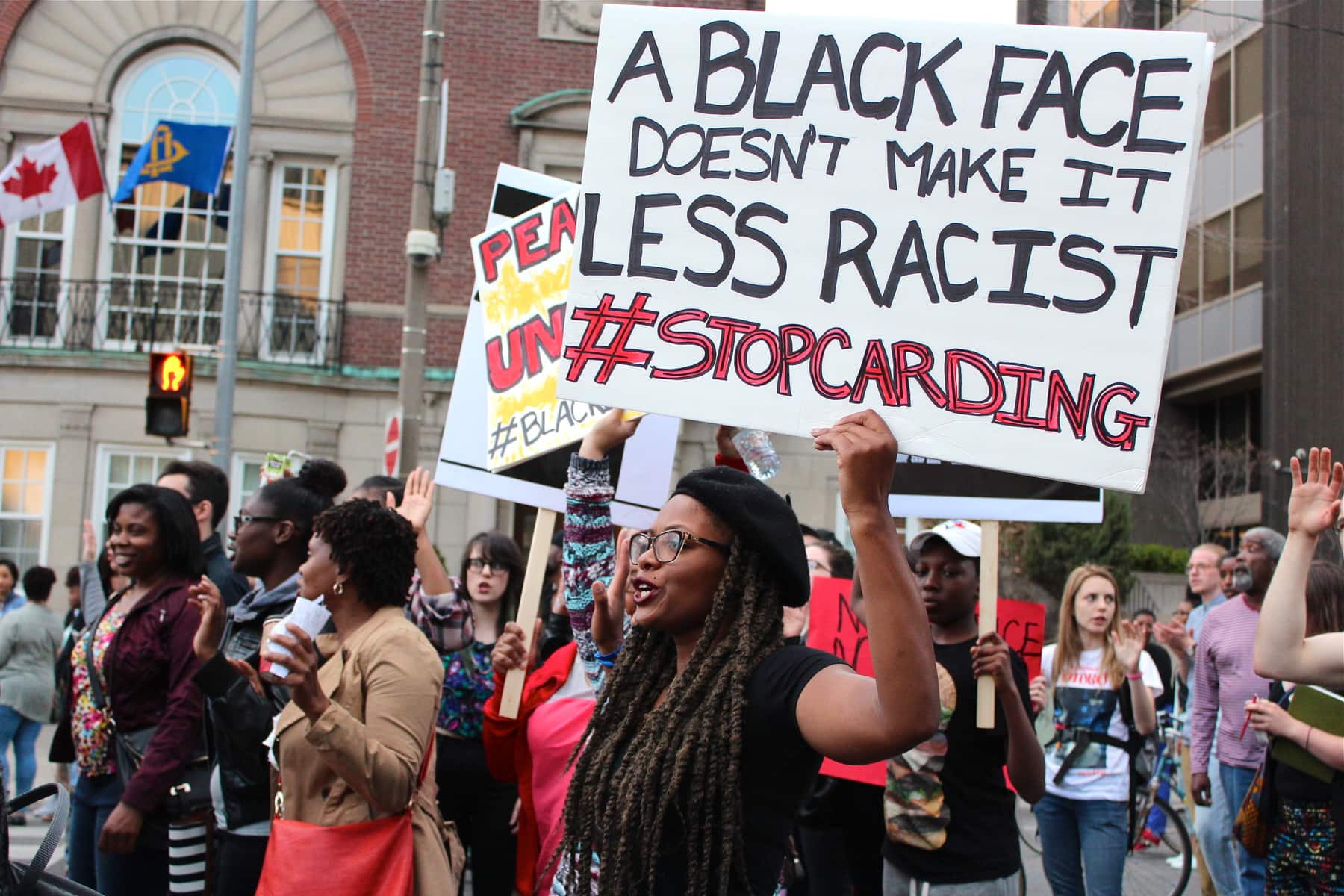KJIPUKTUK (Halifax) – This Thursday, day three and the final day of Solidarity Halifax’ letter writing campaign to stop the racist practice of carding, it’s Nova Scotia’s provincial politicians who are being targeted.
Provincial politicians have been super quiet about this carding business, and when asked they are quick to point elsewhere.

“I don’t think anyone wants the politicians to reach across to tell our police enforcement this is what you can do or not do today. ” premier Stephen McNeil told the CBC way back in January when the story first broke.
McNeil is wrong of course. Telling police what it can and cannot do is one of the reasons we elect our MLAs. The provincial Police Act allows governments to define codes of conduct for officers and implement constraints around the practice of carding, or police street checks as we like to call it here in Nova Scotia, through regulations.
This seems to be something the provincial political parties would rather you didn’t know.
A survey sent out to the political parties prior to the provincial elections in May asked, among other things, about carding.
The survey was the initiative of the African Nova Scotian Decade for People of African Descent Coalition, a partnership between the Canadian Association of Black Lawyers, a national organization, and about 20 African Nova Scotian organizations from across the province.
Both Liberals and Progressive Conservatives simply ignored the carding question, perhaps hoping nobody would notice.
The NDP response endorsed the current initiative by the Nova Scotia Human Rights Commission to hire an independent expert to research the incidence of street checks by Halifax police. It did so even though prominent African Nova Scotians such as Robert Wright, Lanna MacLean and Shawna Hoyte have called for an immediate moratorium on the practice.
Carding has been a high profile issue in Ontario, particularly in Toronto, for several years now, thanks to the great work by individuals like Desmond Cole and organizations like Black Lives Matter.
As a result of that discussion, the Ontario provincial government has already defined various obvious constraints on carding that Nova Scotia MLAs are so reluctant to even consider.
For instance, police in Ontario must tell people they have a right not to talk with them, and refusing to co-operate or walking away cannot then be used as reasons to compel information.
Police must also explain why the person is questioned, and provide their batch number and name. They must do this all the time, not just when challenged to do so.
As well, in Ontario police must issue a yearly report containing the kind of information CBC in Nova Scotia had to dig out using Freedom of Information legislation.
Many believe these Ontario measures don’t go far enough. But Ontario’s provincial politicians at least made a start. In Nova Scotia they simply look the other way.
If you can, please support the Nova Scotia Advocate so that it can continue to cover issues such as poverty, racism, exclusion, workers’ rights and the environment in Nova Scotia. A pay wall is not an option since it would exclude many readers who don’t have any disposable income at all. We rely entirely on one-time donations and a tiny but mighty group of kindhearted monthly sustainers.



